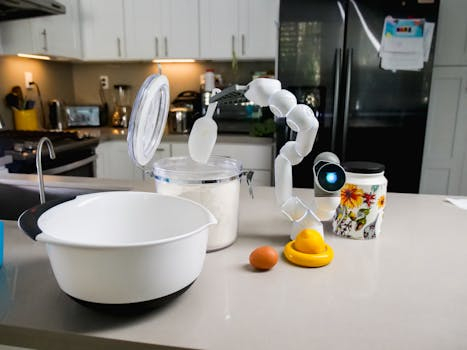Data Privacy Wars: Who Owns Your Smart Home Data?
Welcome to the digital age, where convenience comes at a cost – the compromise of our personal data. With the rise of smart technology, more and more of our daily activities are being recorded and stored in the cloud. From smartphones to smart TVs, the Internet of Things (IoT) has invaded our homes, making our lives easier and more connected. But at what price? As data privacy becomes a hot topic, the battle for ownership of our smart home data intensifies. Who owns this vast amount of personal information and how is it being used? In this article, we explore the data privacy wars surrounding smart home technology and the implications for our privacy and security.
The Rise of Smart Home Technology
Smart home technology has revolutionized the way we live, offering convenience and control at our fingertips. From remotely controlling our thermostats and turning off lights, to ordering groceries and playing our favorite music, the possibilities are endless. But behind these modern conveniences lies a network of interconnected devices that collect and store data about our daily routines and behaviors. This data is then used to make our lives even more seamless, with personalized recommendations and tailored experiences.
Who Owns Your Data?
With smart home devices constantly recording and storing data, the question of ownership becomes a gray area. Is it the manufacturers, the device owners, or the companies providing the smart home services? According to most terms of service agreements, data collected from smart home devices are owned by the companies that provide the services. This includes information such as device usage, location tracking, and even personal conversations captured by voice assistants.
Despite this, many consumers assume that they have control over their data and how it is used. However, the reality is that once the data is collected and in the hands of these companies, it can be used for purposes beyond our consent. This may include selling our data to third-party advertisers, conducting targeted marketing, or even sharing data with law enforcement without our knowledge.
The Impact on Privacy and Security
As our smart homes become more connected, our privacy and security become more vulnerable. Hackers and cybercriminals can exploit weaknesses in these interconnected devices to gain access to our personal information and even control our homes. In 2016, a massive distributed denial-of-service (DDoS) attack on Internet infrastructure company Dyn, used hacked smart home devices to take down major websites and services such as Netflix and Twitter.
The Need for Regulation
As the demand for smart home technology continues to grow, so does the need for regulations to protect our privacy and security. Currently, the data privacy landscape is fragmented, with different laws and regulations in different countries. This means companies can choose which rules to follow, leaving consumers with little control over their data.
In May 2018, the General Data Protection Regulation (GDPR) came into effect in the European Union, giving citizens greater control over their personal data. This includes the right to access, correct, and delete their data, as well as the right to be informed about how their data is being used. However, similar legislation has yet to be implemented in other parts of the world, leaving many consumers vulnerable.
The Future of Smart Homes and Data Privacy
The potential for smart home technology to make our lives easier and more connected is undeniable. But as the demand for these devices increases, the battle for ownership and control of our data intensifies. While regulations may be slow to catch up, it is essential for companies to prioritize data privacy and security to build trust with consumers.
Taking Control of Your Smart Home Data
There are steps you can take to protect your data and privacy while still enjoying the convenience of smart home technology. This includes carefully reading the terms of service, understanding what data is being collected and how it is being used, and setting up strong passwords and two-factor authentication to secure your devices. It is also crucial to regularly update your devices with the latest security patches and keep an eye out for any suspicious activity.
In conclusion, the data privacy wars surrounding smart home technology highlight the need for regulations to protect our personal data. As technology continues to advance, it is essential for both companies and consumers to prioritize privacy and security to ensure a safe and connected future.



